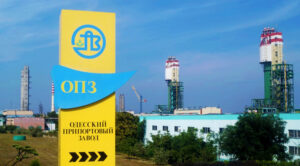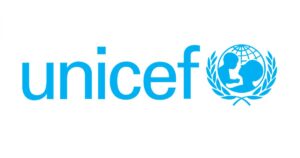
The joint-stock company Odessa Port Plant (OPP, Yuzhny, Odessa region) will hold an extraordinary general meeting of shareholders on December 22, 2025, remotely, by means of a poll, according to a statement from the depositary institution.
OPZ is one of Ukraine’s largest chemical assets (ammonia and urea production), with a controlling stake of 99.5667% owned by the state. In 2025, it was put up for privatization through Prozorro.Sale with a starting price of UAH 4.488 billion, but the auction did not take place.
According to the FGI, as of September 30, 2025, the company employed 1,420 people, and its overdue accounts payable amounted to UAH 17.19 billion, including UAH 214.4 million in salary arrears and UAH 233.9 million in budget arrears.
In recent years, the plant has repeatedly stopped fertilizer production and has actually been operating in limited modes, shifting its focus to transshipment and related services. In particular, management reported that after an unsuccessful attempt to restart ammonia production in 2024, the company received revenue from grain transshipment, but at the end of June 2025, Russian strikes damaged the warehouses, leading to the suspension of these operations.

The Cabinet of Ministers has approved a proposal from the Ministry of Education and Science to implement a joint project with the United Nations Children’s Fund (UNICEF) to provide financial assistance to 1,500 educational institutions for the 2025/2026 academic year.
As reported by Taras Melnychuk, representative of the Cabinet of Ministers in the Verkhovna Rada, on Telegram, the relevant decision was made at a government meeting on Friday.
It is noted that the purpose of the assistance is to ensure that educational institutions are prepared for the winter period and to increase their energy sustainability in frontline and other vulnerable regions.
The amount of financial assistance is set at UAH 420,000 per institution, provided to the founder as a lump sum for each recipient institution, with the number of recipient institutions per founder not exceeding nine.
The decision defines the main criteria for selecting institutions: status as a general secondary or preschool educational institution; location in certain frontline and other vulnerable areas; belonging to territorial communities that do not have an insurmountable level of security risk; organization of full-time or blended learning; absence of accommodation functions for students; not classified as specialized military lyceums; compliance with additional criteria established by UNICEF.
As reported, 700 schools received UAH 290,000 from UNICEF to prepare for winter and modernize school canteens in the 2024/2025 academic year.

The impact of mortgages on the housing market in Ukraine remains limited: less than 3% of housing is purchased on credit, with the share varying significantly by region, according to the NBU’s financial stability report for December 2025.
According to the regulator’s estimates, in the Kyiv region, the share of home purchases with mortgages is almost 9%, while in the central, southern, and eastern regions, new mortgages are “almost non-existent.” In the segment of new buildings up to three years old, mortgages are used significantly more often — the NBU indicates that every fifth apartment in this segment is purchased on credit, as the eOselya program is concentrated there.
The NBU draws attention to the low mortgage rates in complexes under construction and notes that about 44% of transactions are for ready-built housing from developers. At the same time, almost 300 complexes under construction have been accredited for sale through eOselya, but most of them have not yet sold any apartments with mortgages. The regulator expects mortgage lending to pick up after the state support mechanisms are updated and, at the same time, emphasizes the need for other steps, including the implementation of Directive 2014/17/EU on mortgage credit, the introduction of European property valuation standards, and increased transparency of real estate price data and control over construction financing.

In January-November of this year, Ukraine increased exports of processed pig iron in physical terms by 49% compared to the same period last year, to 1 million 734,104 thousand tons.
According to statistics released by the State Customs Service (SCS) on Friday, during the specified period, pig iron exports in monetary terms increased by 48.5% to $669.118 million.
At the same time, exports were mainly to the United States (74.77% of shipments in monetary terms), Italy (13.09%), and Turkey (4.13%).
In the first 11 months of this year, the country imported 39,000 tons worth $78,000 from Germany (51.95%) and Brazil (48.05%), while in January-November 2024, 25 tons of cast iron worth $60,000 were imported.
As reported, on March 12 of this year, in accordance with President Donald Trump’s decision, the US began imposing a 25% tariff on imports of Ukrainian steel products, except for cast iron.
In 2024, Ukraine reduced its exports of processed cast iron in physical terms by 3.4% compared to 2023, to 1 million 290.622 thousand tons, and in monetary terms by 6.1%, to $500.341 million. Exports were mainly to the US (72.64% of shipments in monetary terms), Turkey (8.03%), and Italy (7.30%).
For the whole of 2024, the country imported 38 tons of pig iron worth $90 thousand from Germany, while for the same period in 2023, it imported 154 tons of pig iron worth $156 thousand.

The volume of passenger car imports to Ukraine, including cargo-passenger vans and racing cars (UKT ZED code 8703), exceeded $5.48 billion in January-November 2025, which is 37.2% more than in the same period of 2024 (almost $4 billion) and a quarter more than in the whole of 2024.
According to statistics released by the State Customs Service of Ukraine, the growth rate of passenger car imports has thus accelerated, reaching 33% in the first ten months of the year compared to the same period in 2024.
In particular, in November this year, passenger cars worth $663.3 million were imported into Ukraine, which is 84% more than in November last year.
The top three suppliers of cars to Ukraine in the first 11 months of this year were the US, Germany, and China, while last year they were the US, Germany, and Japan.
In particular, car deliveries from the US increased by 28% to $940 million, and their share in the structure of car imports was 17.4% compared to 18.4% a year earlier.
Cars worth $933.8 million (53.4% more) were imported from Germany to Ukraine, and almost $870 million (15.9% of passenger car imports) from China. Last year, imports from Japan, which was among the top three leaders, amounted to $482.8 million (11.6%).
Imports of passenger cars from other countries during the period amounted to $2.74 billion, compared to $2.19 billion in January-November 2024.
At the same time, in the first 11 months of this year, Ukraine exported only $7.23 million worth of such vehicles, in particular to the UAE, Canada, and the US, while a year ago, during the same period, the country supplied $9.5 million worth of such vehicles to foreign markets, mainly to Canada, Germany, and the US.
According to the State Customs Service, passenger cars accounted for 7.27% of the total structure of imports to Ukraine in January-November 2025 and 0.02% of the export structure.
As reported, in 2024, passenger cars worth $4.385 billion were imported into Ukraine, which is 8% more than a year earlier, and $10.1 million worth were exported (2.7 times less).

Imports of electric telephone or telegraph apparatus and videophones (HS 8517) to Ukraine in January-November increased by 27.6% compared to the same period in 2024, reaching $1.436 billion, according to statistics from the State Customs Service.
According to statistics, the largest volume of these products was imported from China (55.4%, or $795.7 million), Vietnam (15.3%, $220 million), and the United States (8.2%, $117.9 million). Last year, it was also China (64%, $720.6 million), Vietnam (16.3%, $183.6 million), and the United States (4.3%, $48.2 million).
In November this year, Ukraine imported telephone and telegraph equipment worth $159.8 million, which is 33.6% more than a year ago.
At the same time, exports of these products from Ukraine in January-November 2025 amounted to $111.2 million, which is 32.2% more than in the first 11 months of last year. Supplies were mainly to Hungary (70.2%), Poland (23.9%), and the Netherlands (less than 1%). During the same period in 2024, products were exported mainly to the same countries, but Hungary’s share was 63.4%, Poland’s was 27.8%, and the Netherlands’ was 3.6%.
According to the State Customs Service, in 2024, telephone or telegraph apparatus and videophones worth almost $1.26 billion were imported into Ukraine, which is 10% more than in 2023.